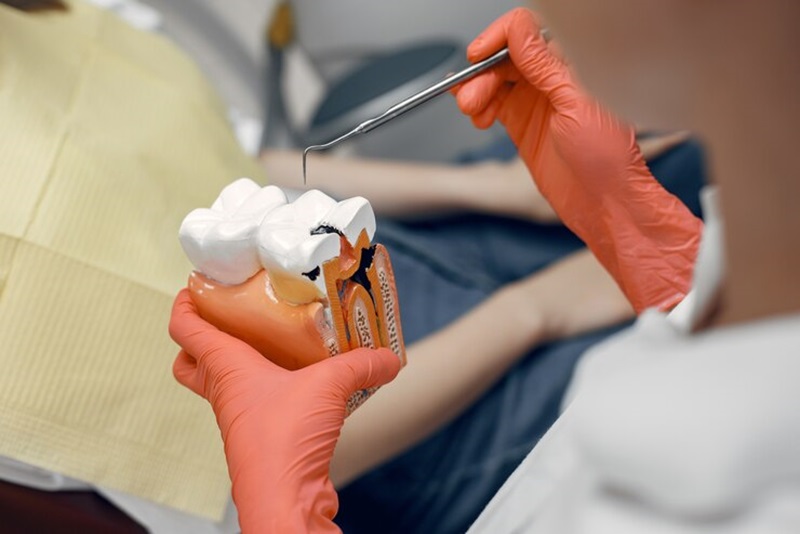If your dentist tells you that you need a root canal or a capped tooth, you may be surprised because a tooth that has undergone root canal treatment frequently requires a dental crown to preserve itself. You should seek a second opinion from another dentist to determine how the tooth beneath the crown became infected and necessitated a root canal.
You may have a problem with your hands, but a tooth with a crown can deteriorate if you do not floss correctly below the crown. An accumulation of germs and plaque can harm teeth and require a root canal.
Dental health is a crucial aspect of our overall well-being, and various dental procedures play a significant role in maintaining it. Among these procedures, dental crowns and root canal treatment near you are commonly performed to restore and preserve teeth. Let’s delve into the relationship between dental crowns and root canals to better understand how they work together to enhance oral health.
Role of Dental Crowns
Dental crowns, also known as caps, are protective coverings placed over damaged or weakened teeth. They serve multiple purposes, such as restoring the tooth’s shape, size, strength, and overall appearance. Crowns can be made from various materials, including metal alloys, porcelain, and ceramic, which a dentist near you will be able to convey to you.
Role of Root Canals
Root canals, on the other hand, are dental procedures designed to treat the innermost part of the tooth, the pulp. When the pulp becomes infected or inflamed due to decay, trauma, or other issues, a root canal becomes necessary to remove the infected tissue, disinfect the area, and seal the tooth to prevent further infection.
Connection Between Dental Crowns and Root Canals
1. Post-Root Canal Protection
After a root canal procedure, the affected tooth may become more fragile due to the removal of the pulp and internal structure. Placing a dental crown over the treated tooth provides reinforcement, ensuring its strength and functionality are restored. This protects the tooth from further damage or fracture.
2. Enhanced Structural Support
Dental crowns in Spruce Grove not only protect the tooth’s surface but also provide structural support. This is particularly crucial for teeth that have undergone a root canal, as the removal of the pulp can weaken the tooth. The crown acts as a protective shield, preventing potential fractures and preserving the tooth’s integrity.
3. Improved Aesthetics
Root canals often leave teeth discoloured or with an altered appearance. Dental crowns can be customized to match the colour, shape, and size of the natural teeth, restoring a patient’s smile to its former beauty. This aesthetic improvement is an essential aspect of a comprehensive dental care approach.
4. Long-Term Preservation
The combination of a root canal and a dental crown contributes to the long-term preservation of a tooth. By addressing both the internal and external aspects of tooth damage, this dual approach increases the likelihood of the tooth remaining healthy and functional for an extended period of time.
Do you need a dental procedure?
The relationship between dental crowns and root canals is symbiotic, with each procedure complementing the other to ensure optimal oral health. While root canals address internal issues, dental crowns provide the necessary external protection and support, resulting in a comprehensive solution for damaged or infected teeth. If you’re facing dental issues, consult with your dentist in Spruce Grove to determine whether a root canal, a dental crown, or a combination of both is the right solution for you.
Root canals are only used when there is deterioration or injury. Crowns, on the other hand, are frequently utilized in conjunction with a root canal operation, although they can also be used for implants or cosmetic purposes.
Porcelain or precious metals may be more expensive, so talk to your dentist about what will work best for your teeth and long-term results. Contact Queen Street Dental to make an appointment to begin your process!

